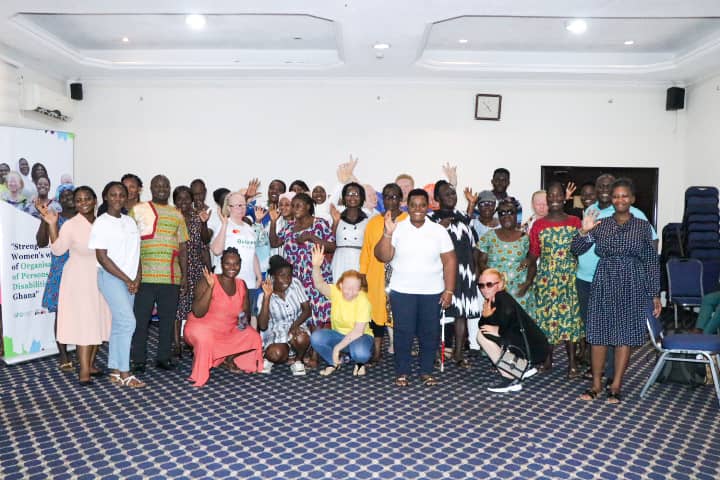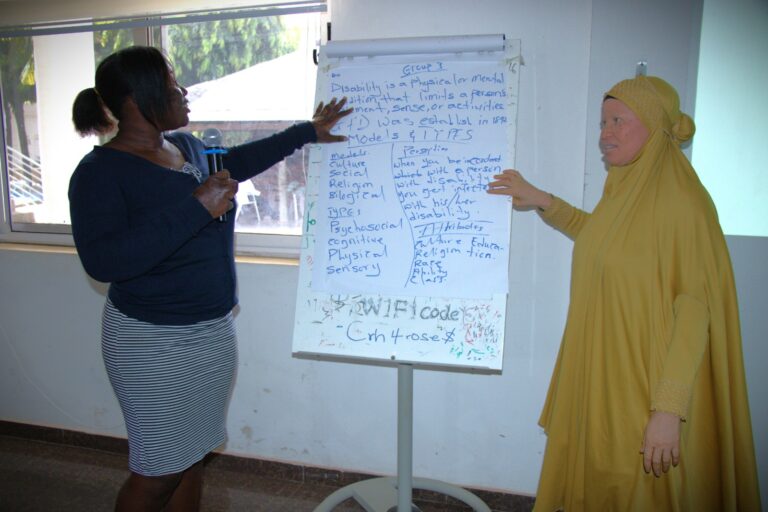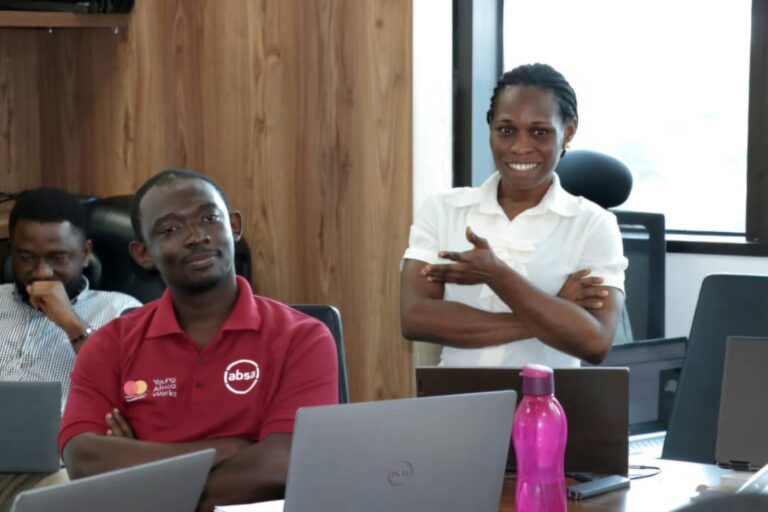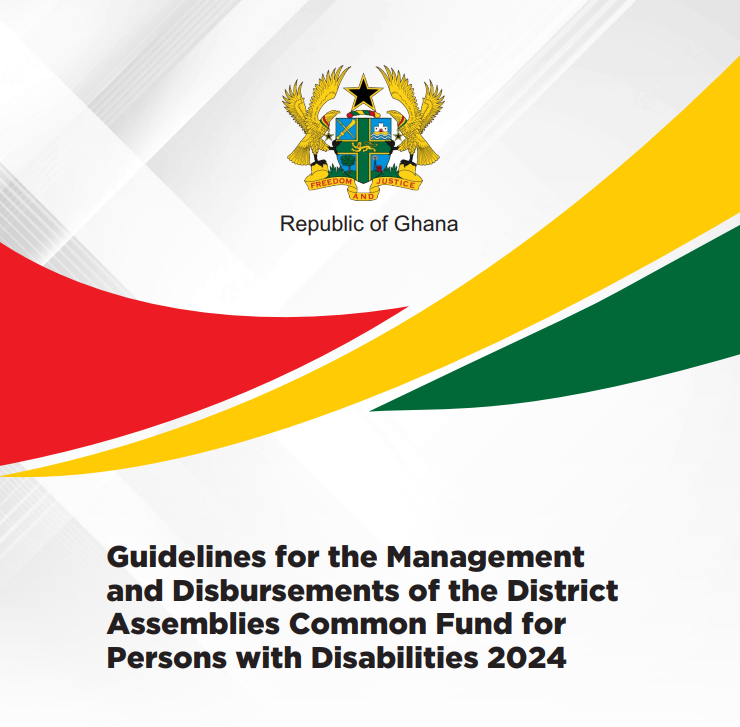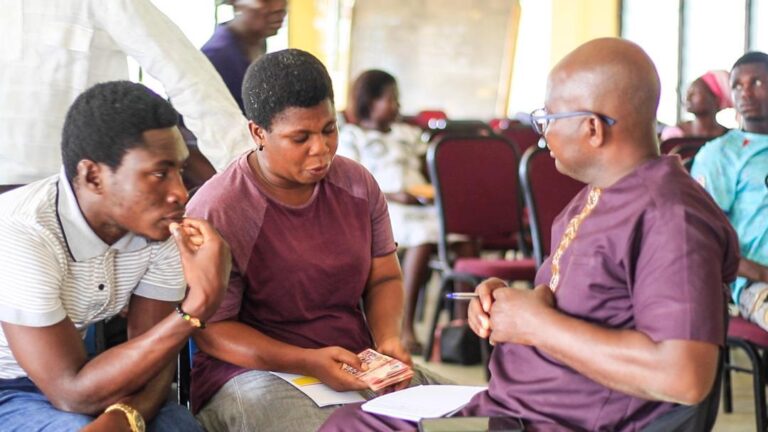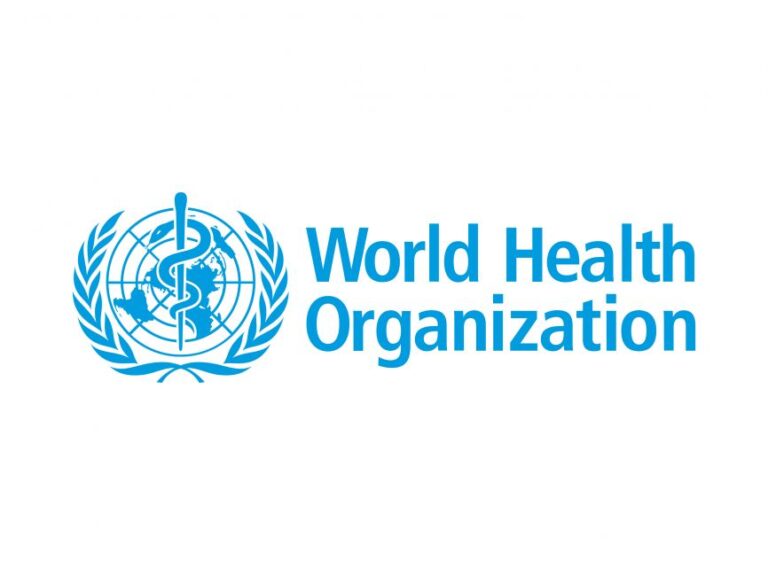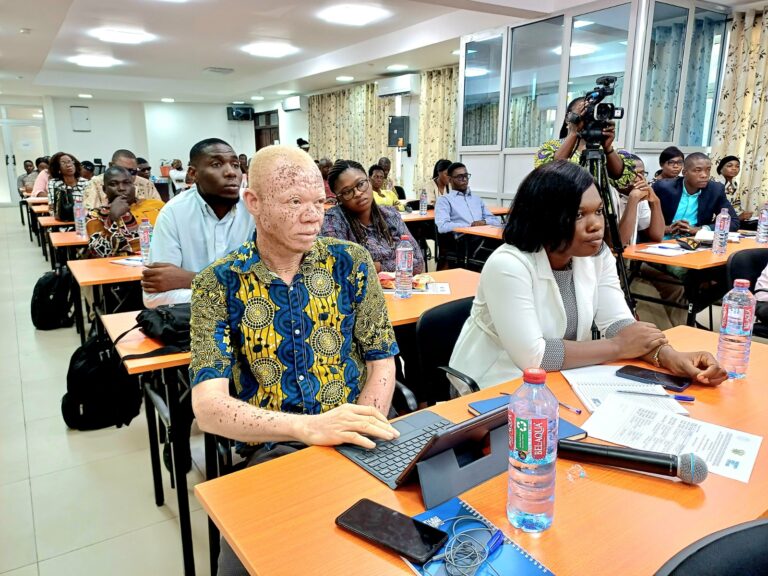Ghana Federation of Disability Organisations Holds Women’s Empowerment Workshop
The Ghana Federation of Disability Organisations (GFD) conducted a capacity-building workshop on gender equality and women’s empowerment on April 4, 2024. Funded by the Disability Rights Fund (DRF), the workshop targeted women’s wings from three organisations of persons with disabilities: The Ghana Association of Persons with Albinism (GAPA), the Ghana Blind Union (GBU), and the Mental Health Society of Ghana (MEHSOG).
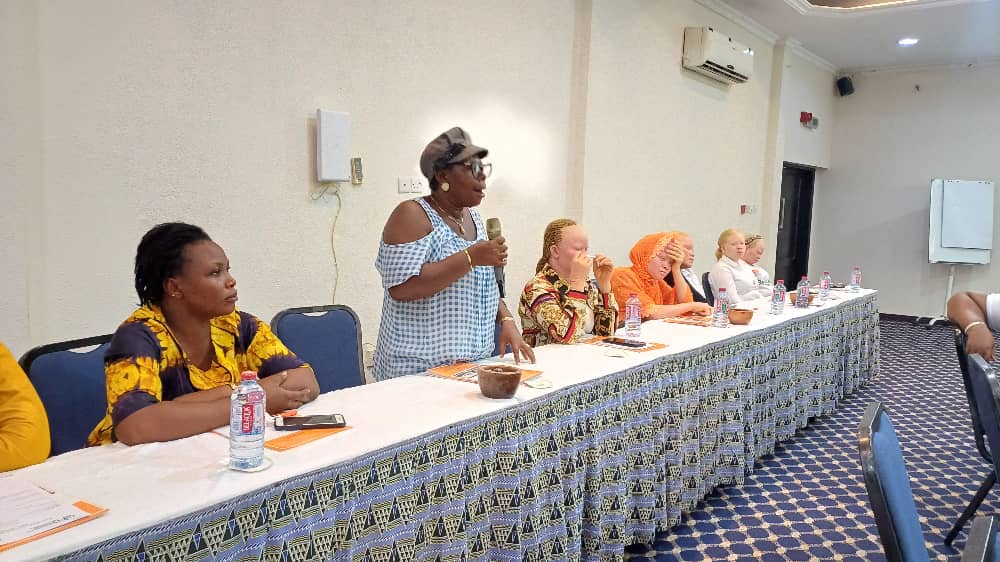
The workshop kicked off with an icebreaker activity. Participants networked and shared their organizations’ work by moving around and introducing themselves to others. This unique approach ensured everyone learned about the different women’s wings and their activities.
Madam Martha Coffie, the National Gender Representative of GFD, delivered the welcome remarks. Highlighting the global importance of women’s empowerment, she encouraged participants to be open and voice their opinions.
Jaleel Odoom then facilitated the day’s sessions. He began by discussing the existing challenges and barriers to gender equality. He highlighted key factors driving gender mainstreaming, including the 1995 Beijing Women’s Conference, economic inequalities, women’s underrepresentation, stereotypes, and persistent discrimination.
Jaleel acknowledged Ghana’s advancements in gender mainstreaming. Initiatives like the free school uniforms initiative, skills training for young women, the Livelihood Empowerment Against Poverty (LEAP) program, and the establishment of gender desks in government ministries all contribute to progress. Notably, the creation of the Ministry of Gender and Children’s Affairs in 2001 demonstrates Ghana’s commitment to this issue.
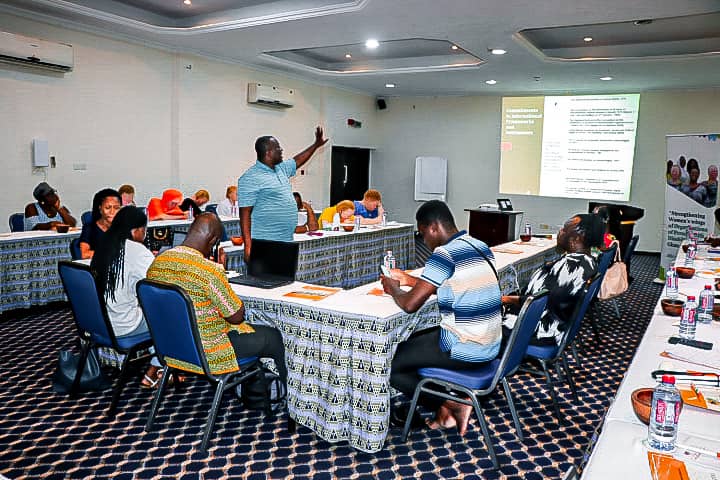
The workshop covered various topics beyond introductory challenges. These included key international and domestic instruments on gender equality and women’s empowerment, Ghana’s national gender policy, strategies for ensuring women’s participation in society, and monitoring and evaluation techniques.
Participants found the workshop valuable. Faridat Abass from MEHSOG shared, “I learned about my legal rights in Ghana. Now I know I can access legal aid from the Ministry of Justice for free. Legal fees often prevent women from pursuing their rights.”
Rose Mensah of GAPA appreciated the networking opportunity. “The initial activity where we interacted with people from other organizations was a great idea. It helped me learn about their work.”
This workshop empowered women from various disability organizations with knowledge, fostering collaboration, and a stronger voice for women’s rights in Ghana.

